Josef A. Brinckmann and Michael P. Lindenmaier
See book keywords and concepts |
 Johanniskraut
Plant source: Hypericum perforatum L. (St. john's wort), Hypericaceae [= Guttiferae].
Synonyms: Herbe de la Saint-Jean, Mille-pertuis (Fr.), Johanniskraut, Tupfelhartheu, Blutkraut, Johannisblut, Herrgottsblut (Ger.), Sumidad de hiperico, Sumidad de hipericon, Hierba de San Juan (Span.).
Origin: The material of commerce is obtained partially from wild collection in Europe, western Asia, and the U.S. However, large-scale cultivation is rapidly increasing, for example in Germany [1] and Chile, as well as in Canada and the U.S.
Constituents: 0.1—0. Johanniskraut
Plant source: Hypericum perforatum L. (St. john's wort), Hypericaceae [= Guttiferae].
Synonyms: Herbe de la Saint-Jean, Mille-pertuis (Fr.), Johanniskraut, Tupfelhartheu, Blutkraut, Johannisblut, Herrgottsblut (Ger.), Sumidad de hiperico, Sumidad de hipericon, Hierba de San Juan (Span.).
Origin: The material of commerce is obtained partially from wild collection in Europe, western Asia, and the U.S. However, large-scale cultivation is rapidly increasing, for example in Germany [1] and Chile, as well as in Canada and the U.S.
Constituents: 0.1—0. |
Earl Mindell, R.Ph., Ph.D.
See book keywords and concepts |
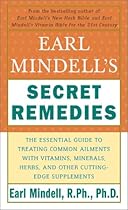 If you do use niacin, niacinamide is the preferred form; it reduces side effects such as the hot flush that can often result from niacin supplements.
St. John's wort: This natural antidepressant can cause sensitivity to sunlight. If you are taking St. john's wort, avoid exposure to the sun.
Acne
Acne is not just for kids! It can strike anyone, at any age.
Countless teenagers have been made miserable by acne, but so have countless adults. Although acne typically strikes between the ages of eighteen and twenty-four, it can occur at any age, and often does. If you do use niacin, niacinamide is the preferred form; it reduces side effects such as the hot flush that can often result from niacin supplements.
St. John's wort: This natural antidepressant can cause sensitivity to sunlight. If you are taking St. john's wort, avoid exposure to the sun.
Acne
Acne is not just for kids! It can strike anyone, at any age.
Countless teenagers have been made miserable by acne, but so have countless adults. Although acne typically strikes between the ages of eighteen and twenty-four, it can occur at any age, and often does. |
National Women's Health Network
See book keywords and concepts |
 Wort {Hypericum perforatum)
St. john's wort (SJW) is very popular in the United States as an antidepressant. The studies performed on this herb come from Europe, primarily Germany.
A recent meta-analysis evaluated twenty-three randomized trials (twenty were double-blind) of St. john's wort in a total of 1,757 outpatients with mild to moderate depression.45 Improvement in depressive symptoms occurred in all groups.
In fifteen placebo-controlled trials, SJW was found to be almost three times better than placebo. Wort {Hypericum perforatum)
St. john's wort (SJW) is very popular in the United States as an antidepressant. The studies performed on this herb come from Europe, primarily Germany.
A recent meta-analysis evaluated twenty-three randomized trials (twenty were double-blind) of St. john's wort in a total of 1,757 outpatients with mild to moderate depression.45 Improvement in depressive symptoms occurred in all groups.
In fifteen placebo-controlled trials, SJW was found to be almost three times better than placebo. |
Textbook of Natural Medicine 2nd Edition Volume 2Michael T. Murray, ND
See book keywords and concepts |
| Hypericin perforatum (St john's wort)
Dosage: 3 capsules (300 mg each) q.i.d. M&T, or 2-10 mg/day "HY" (Pacific Biologies).
Research review:
• Incubation with HIV rendered the virus noninfectious.119
• Inhibits binding and entry of HIV into host cells.120
• St john's wort has the ability to cross the blood-brain barrier, which is important considering the fact that HIV virus often attacks the brain.121
Note. It is difficult to achieve sufficiently high blood levels of Hypericin via oral administration to produce antiviral activity. |
Textbook of Natural Medicine 2nd Edition Volume 1Michael T. Murray, ND
See book keywords and concepts |
| Totals
317
101/158 (64%)
93/159 (58%)
'Responder rate, a decrease in the HAMD of greater than 50% or achieving a value less than 10.
St john's wort Imipramine
Hamilton Depression Scale
Initial measurement
20.2
19.4
Week 6
8.8
10.7
Depression Scale (von Zerssen)
Initial measurement
39.6
39
Week 6
27.2
29.2 of 102 patients with depression.34 Patients were given either St john's wort extract (300 mg t.i.d.) or maprotiline (25 mg t.i.d.) for a period of 4 weeks. Effectiveness was determined using the HAMD, D-S, and CGI scales. |
| A photosensitivity reaction to hypericin (St john's wort). Int Conf AIDS 1992; 8: B90 (abstract no. PoB 3018)
45. Araya OS, Ford JH. An investigation of the type of photosensitization caused by the ingestion of St john's wort (Hypericum perforatum) by calves. J Comp Path 1981; 91: 135-141
46. Siegers CP, Biel S, Wilhelm KP. Zur frage der phototoxizitat von hypericum. 1993; 12: 320-322
47. Woelk H, Burkard G, Grunwald J. Benefits and risks of the hypericum extract LI 160. drug monitoring study with 3250 patients. J Geriatr Psychiatry Nerol 1994; 7: S34-38
48. |
Mark Stengler, N.D.
See book keywords and concepts |
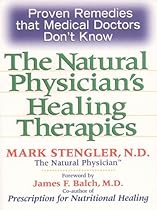 Bruises, Burns, and Wounds
St. john's wort has a long history of use for the treatment of bruises, burns, and wounds. The oil is applied topically and provides soothing relief as well as prevents secondary bacterial infections. It also helps to relieve nerve injuries and nerve pain. European herbalists also use the oil for the treatment of eczema.
^ Depression
St. john's wort has been the subject of some of the best and most intensive clinical and scientific research among all the herbs in the world. I find that it is helpful in about 70 percent of people who take it for depression. Bruises, Burns, and Wounds
St. john's wort has a long history of use for the treatment of bruises, burns, and wounds. The oil is applied topically and provides soothing relief as well as prevents secondary bacterial infections. It also helps to relieve nerve injuries and nerve pain. European herbalists also use the oil for the treatment of eczema.
^ Depression
St. john's wort has been the subject of some of the best and most intensive clinical and scientific research among all the herbs in the world. I find that it is helpful in about 70 percent of people who take it for depression. |
Dr. Gary Null
See book keywords and concepts |
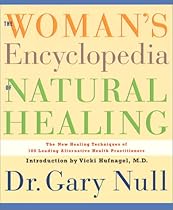 Aufmerksamkeit und Reaktionsvermogen bleiben erhalten" [St. john's wort Extract in the Ambulatory Therapy of Depression: Attention and Reaction Ability are Preserved], Fortschr. Med. 111, no. 19 (July 10, 1993): 339-42.
A study compared the antidepressive and anxiety-relieving effects of a valerian root and St. john's wort extract to those of amitriptyline. Results showed the herbal extract to be as effective as the amitriptyline, prompting the authors to argue for the use of phy-tomedicines (plant-derived medicines) in the treatment of depression and mood disorders.
K. O. Hiller and V. Aufmerksamkeit und Reaktionsvermogen bleiben erhalten" [St. john's wort Extract in the Ambulatory Therapy of Depression: Attention and Reaction Ability are Preserved], Fortschr. Med. 111, no. 19 (July 10, 1993): 339-42.
A study compared the antidepressive and anxiety-relieving effects of a valerian root and St. john's wort extract to those of amitriptyline. Results showed the herbal extract to be as effective as the amitriptyline, prompting the authors to argue for the use of phy-tomedicines (plant-derived medicines) in the treatment of depression and mood disorders.
K. O. Hiller and V. |
Kevin Trudeau
See book keywords and concepts |
 Another perfect example of this debunking campaign was a headline that said "Saint john's wort Not Effective for Treating Depression, Study Concludes." The article—written in a national newspaper— stated that a recent study was conducted and proved that Saint John's
Wort, the herbal remedy touted as a depression alleviant, was found to have absolutely no effect on depression. This article went on to talk about how many herbs are used to treat various illnesses and disease without any research whatsoever to back up the effectiveness of those herbs. Another perfect example of this debunking campaign was a headline that said "Saint john's wort Not Effective for Treating Depression, Study Concludes." The article—written in a national newspaper— stated that a recent study was conducted and proved that Saint John's
Wort, the herbal remedy touted as a depression alleviant, was found to have absolutely no effect on depression. This article went on to talk about how many herbs are used to treat various illnesses and disease without any research whatsoever to back up the effectiveness of those herbs. |
David Hoffman, FNIMH, AHG
See book keywords and concepts |
 At the height of the media frenzy over the "discovery" that St. john's wort can help alleviate mild depression, I was asked to present a paper on the topic of "Herbal Alternatives to Prozac." This quest to identify an herbal alternative to Prozac is a perfect example of how the real gifts of herbalism can be deflected by underlying assumptions. By phrasing the topic in this way, we are forced to respond to the issue in terms of the efficacy and pharmacological mechanism of Prozac, rather than by highlighting the potential contribution of phytotherapy to the treatment of depression. At the height of the media frenzy over the "discovery" that St. john's wort can help alleviate mild depression, I was asked to present a paper on the topic of "Herbal Alternatives to Prozac." This quest to identify an herbal alternative to Prozac is a perfect example of how the real gifts of herbalism can be deflected by underlying assumptions. By phrasing the topic in this way, we are forced to respond to the issue in terms of the efficacy and pharmacological mechanism of Prozac, rather than by highlighting the potential contribution of phytotherapy to the treatment of depression. |
Mark Blumenthal
See book keywords and concepts |
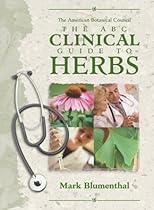 Drug interactions of Hypericum perforatum (St. john's wort) are potentially hazardous. Ned Tijdschr Geneeskd 2000 Apr 22;l44(17):811-2.
BAnz. See: Bundesanzeiger.
Bhattacharya S, Chakrabarti A, Chatterjee S. Activity profiles of two hyperforin-con-taining Hypericum extracts in behavioral models. Pharmacopsychiatry 1998;31 (suppl. l):22-9.
Bladt S, Wagner H. Inhibition of MAO by fractions and constituents of Hypericum extract. / Geriatr Psychiat Neurol 1994; 7(l):557-9. Blumenthal M. Herb sales down 15% in mainstream market. HerbalGram
2001;51:69. Drug interactions of Hypericum perforatum (St. john's wort) are potentially hazardous. Ned Tijdschr Geneeskd 2000 Apr 22;l44(17):811-2.
BAnz. See: Bundesanzeiger.
Bhattacharya S, Chakrabarti A, Chatterjee S. Activity profiles of two hyperforin-con-taining Hypericum extracts in behavioral models. Pharmacopsychiatry 1998;31 (suppl. l):22-9.
Bladt S, Wagner H. Inhibition of MAO by fractions and constituents of Hypericum extract. / Geriatr Psychiat Neurol 1994; 7(l):557-9. Blumenthal M. Herb sales down 15% in mainstream market. HerbalGram
2001;51:69. |
David Hoffman, FNIMH, AHG
See book keywords and concepts |
 After that time, filter the liquid into a dark glass container for storage.
St. john's wort Oil
Pick the flowers when they have just opened and crush them in a teaspoonful of olive oil. Place the flowers in a glass container, cover them with more oil, mix well, and put the container in the sun or a warm place for 3 to 6 weeks, at the end of which time the oil will be bright red.
Press the mixture through a cloth to filter out all the oil and leave the oil to stand. There will be some water in the liquid, which will settle on the bottom, so decant the oil from the top. After that time, filter the liquid into a dark glass container for storage.
St. john's wort Oil
Pick the flowers when they have just opened and crush them in a teaspoonful of olive oil. Place the flowers in a glass container, cover them with more oil, mix well, and put the container in the sun or a warm place for 3 to 6 weeks, at the end of which time the oil will be bright red.
Press the mixture through a cloth to filter out all the oil and leave the oil to stand. There will be some water in the liquid, which will settle on the bottom, so decant the oil from the top. |
Andrew Chevallier
See book keywords and concepts |
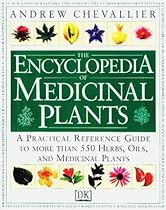 John's Wort
An erect perennial growing to 32 in (80 cm) with bright yellow flowers in a flat-topped cluster.
St. john's wort flowers at the time of the summer solstice, and in medieval Europe it was considered to have powerful magical properties that enabled it to repel evil. Medicinally, it was used to treat emotional and nervous complaints. In the 19th century the herb fell into disuse, but recent research has brought it back into prominence as an extremely valuable remedy for nervous problems. John's Wort
An erect perennial growing to 32 in (80 cm) with bright yellow flowers in a flat-topped cluster.
St. john's wort flowers at the time of the summer solstice, and in medieval Europe it was considered to have powerful magical properties that enabled it to repel evil. Medicinally, it was used to treat emotional and nervous complaints. In the 19th century the herb fell into disuse, but recent research has brought it back into prominence as an extremely valuable remedy for nervous problems. |
| Its antiviral, antiinflammatory, and healing powers work just as well within the body as externally.
St. john's wort was a folk remedy for insanity in the Middle Ages.
Habitat & Cultivation
Native to Britain and Europe, St. john's wort now grows wild throughout much of the world. It is found in meadows, on banks, and by roadsides, and prefers sunny positions and chalky soils. It can be grown from seed in spring or by dividing the rootstock in autumn. The flowering tops are harvested in midsummer. |
| Europe as a remedy for depression.
St. john's wort infused oil
Dried St. John's wort
-Valerian (Valeriana officinalis, p. 146) is a good herb for calming nervous tension.
Goldenrod
(Solidago virgaurea, p. 269) is an astringent herb taken for sore throats, congestion, and urinary tract ^problems.
Calendula
(Calendula officinalis, p. 69) is an age-old remedy for soothing inflamed skin.
Europe
Despite regional variations, European herbal practices largely arose from the common root of the classical tradition. |
Mark Blumenthal
See book keywords and concepts |
 Description
St. john's wort (Hypericum perforatum L., Fam. Clusiaceae) preparations consist of dried above-ground parts (flowers and stems), gathered during the flowering season. Preparations include aqueous extracts (teas), standardized extracts, alcoholic tinctures, dry extracts in capsules or tablets, and oil infusions (topical) (Blumenthal et al, 2000). Standardization is typically to 0.3% hypericin, or 2-4.5% hyperforin (Bruneton, 1999). In vitro research suggests that hyperforin may be the main antidepressive constituent (Muller etal, 1998). Description
St. john's wort (Hypericum perforatum L., Fam. Clusiaceae) preparations consist of dried above-ground parts (flowers and stems), gathered during the flowering season. Preparations include aqueous extracts (teas), standardized extracts, alcoholic tinctures, dry extracts in capsules or tablets, and oil infusions (topical) (Blumenthal et al, 2000). Standardization is typically to 0.3% hypericin, or 2-4.5% hyperforin (Bruneton, 1999). In vitro research suggests that hyperforin may be the main antidepressive constituent (Muller etal, 1998). |
| Clusiaceae]
Overview
St. john's wort (SJW) has been used for various ailments since the ancient Greeks; the Greek physician Hippocrates (ca.400 B.C.E.) was one of the first to document its therapeutic use. Since the time of the Swiss physician Paracelsus (ca. 1540 C.E.) it was used to treat mental disorders (Blumenthal et al, 2000; Hobbs, 1988/89). SJW rose from virtual obscurity in the U.S. |
David Hoffman, FNIMH, AHG
See book keywords and concepts |
 Nervine Tonics for Children
Avena sativa (oats)
Hypericum perforatum (St. john's wort) Scutellaria lateriflora (skullcap)
Nervine Relaxants for Children
Hyssopus officinalis (hyssop) Lavandula spp. Nervine Tonics for Children
Avena sativa (oats)
Hypericum perforatum (St. john's wort) Scutellaria lateriflora (skullcap)
Nervine Relaxants for Children
Hyssopus officinalis (hyssop) Lavandula spp. |
Kevin Trudeau
See book keywords and concepts |
 Reuters reports that the herbal remedy St. john's wort is as effective, or more effective, in treating depression than drugs.
• The FDA itself finally admits that extra virgin olive oil reduces the chances of coronary heart disease.
• The BBC news reports that eating apples wards off colon cancer, and apples prevent and can cure cancer.
• The Associated Press reports that walking keeps weight in check.
• Reuters reports that people who sleep less tend to be fat, showing the benefits of getting proper rest.
• ABC News reports that relaxation techniques lower blood pressure. Reuters reports that the herbal remedy St. john's wort is as effective, or more effective, in treating depression than drugs.
• The FDA itself finally admits that extra virgin olive oil reduces the chances of coronary heart disease.
• The BBC news reports that eating apples wards off colon cancer, and apples prevent and can cure cancer.
• The Associated Press reports that walking keeps weight in check.
• Reuters reports that people who sleep less tend to be fat, showing the benefits of getting proper rest.
• ABC News reports that relaxation techniques lower blood pressure. |
| It also failed to mention that there are dozens of studies that show that Saint john's wort is, in fact, effective. But obviously this study was flawed. The fact is that you can create a study to show virtually anything you want, but the news media chose only to talk negatively about the herbal, all-natural supplement and didn't have anything negative to say about the drug. Debunking by use of studies is very common. Most "studies" are funded by the drug industry. The researchers are given very specific parameters and objectives. |
Mark Blumenthal
See book keywords and concepts |
 One 14-day study on 10 patients, using the antiseizure drug carbamazepine (Tegretol®), found that 300 mg St. john's wort extract, three times daily, did not increase the clearance of the drug (Burstein et al, 2000). Sudden discontinuation of SJW after prolonged use may lead to higher plasma levels of these drugs if used simultaneously, with the risk of adverse effects (Baede-van Dijk etal, 2000). One 14-day study on 10 patients, using the antiseizure drug carbamazepine (Tegretol®), found that 300 mg St. john's wort extract, three times daily, did not increase the clearance of the drug (Burstein et al, 2000). Sudden discontinuation of SJW after prolonged use may lead to higher plasma levels of these drugs if used simultaneously, with the risk of adverse effects (Baede-van Dijk etal, 2000). |
| Asian ginseng, saw palmetto, St. john's wort, etc.), it is not feasible to include all the studies in the literature. In these cases, many of the primary and most recent trials are included. In the case of other herbs (e.g., ginger [Zingiber officinale] and valerian [Valeriana officinalis]), as many of the clinical trials as the editors could locate are included. |
Nicola Reavley
See book keywords and concepts |
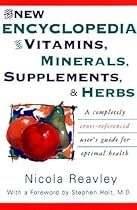 Herbal medicine and depression
St john's wort (Hypericum perforatum) is a well-known herbal treatment for depression. In a study published in 1996 in the British Medical Journal, researchers from Germany and America analysed the results of 23 clinical trials that looked at St john's wort in the treatment of depression.8 The trials involved 1757 patients with mild to moderately severe depression. Herbal medicine and depression
St john's wort (Hypericum perforatum) is a well-known herbal treatment for depression. In a study published in 1996 in the British Medical Journal, researchers from Germany and America analysed the results of 23 clinical trials that looked at St john's wort in the treatment of depression.8 The trials involved 1757 patients with mild to moderately severe depression. |
Earl L. Mindell, R.Ph., Ph.D.
See book keywords and concepts |
 John's Wort
St. john's wort, which has been used medicinally for many centuries by the Chinese, the Greeks, the Europeans and the American Indians, is well-known for its positive effect on anxiety, insomnia, depression and a physical illness which has long been associated with stress: heart disease. It also seems to be effective as a treatment for seasonal affective disorder (SAD). This herb has been extremely well-studied in Europe, and found over and over again to be as effective as the SSRIs in treating depression, and as the benzodiazepines in treating anxiety. John's Wort
St. john's wort, which has been used medicinally for many centuries by the Chinese, the Greeks, the Europeans and the American Indians, is well-known for its positive effect on anxiety, insomnia, depression and a physical illness which has long been associated with stress: heart disease. It also seems to be effective as a treatment for seasonal affective disorder (SAD). This herb has been extremely well-studied in Europe, and found over and over again to be as effective as the SSRIs in treating depression, and as the benzodiazepines in treating anxiety. |
Mark Blumenthal
See book keywords and concepts |
 Clusiaceae]
Overview
St. john's wort (SJW) rose from virtual obscurity in the U.S. to become the fifth best-selling dietary supplement in mainstream retail stores. Its rise to fame came after the national media reported clinical research showing that SJW is safe and effective for treating mild to moderate depression. The Greek physician Hippocrates (ca. 460-377 B.C.E.) was one of the first to speak of the health benefits of SJW. Preparations include teas, alcoholic tinctures, and tablets using either the plant in its crude form or standardized preparation. Clusiaceae]
Overview
St. john's wort (SJW) rose from virtual obscurity in the U.S. to become the fifth best-selling dietary supplement in mainstream retail stores. Its rise to fame came after the national media reported clinical research showing that SJW is safe and effective for treating mild to moderate depression. The Greek physician Hippocrates (ca. 460-377 B.C.E.) was one of the first to speak of the health benefits of SJW. Preparations include teas, alcoholic tinctures, and tablets using either the plant in its crude form or standardized preparation. |
Dr. Cass Ingram
See book keywords and concepts |
 Yet, it was also regarded as sort of miracle cure for various wounds, including internal ulcers, skin wounds, burns, and cuts.
St. john's wort contains a wide array of unique compounds. It is an excellent source of flavonoids, which is made obvious by the fact that it consists largely of brightly colored yellow or yellow-orange flowers. According to the latest research the flavonoids, notably a compound known as hyperforin, appear to be the major active ingredients accounting for its brain enhancing, wound healing, and anti-stress actions. Yet, it was also regarded as sort of miracle cure for various wounds, including internal ulcers, skin wounds, burns, and cuts.
St. john's wort contains a wide array of unique compounds. It is an excellent source of flavonoids, which is made obvious by the fact that it consists largely of brightly colored yellow or yellow-orange flowers. According to the latest research the flavonoids, notably a compound known as hyperforin, appear to be the major active ingredients accounting for its brain enhancing, wound healing, and anti-stress actions. |
Robyn Landis
See book keywords and concepts |
 As is the case with most herbs, the complex interplay of many compounds is believed to be responsible for the beneficial effects.
St. john's wort inhibits the enzyme monoamine oxidase (MAO), just as Prozac and other serotonin-selective reuptake inhibitors (SSRIs) do, but it does so more weakly. It also modulates and balances the brain chemicals serotonin and norepinephrine, much as tricyclic and tetracyclic drugs (used for the most common form of serious depression) do. It may also inctease endorphin levels.
According to Dr. Michael Murray, N.D., St. As is the case with most herbs, the complex interplay of many compounds is believed to be responsible for the beneficial effects.
St. john's wort inhibits the enzyme monoamine oxidase (MAO), just as Prozac and other serotonin-selective reuptake inhibitors (SSRIs) do, but it does so more weakly. It also modulates and balances the brain chemicals serotonin and norepinephrine, much as tricyclic and tetracyclic drugs (used for the most common form of serious depression) do. It may also inctease endorphin levels.
According to Dr. Michael Murray, N.D., St. |
Dr. Cass Ingram
See book keywords and concepts |
 What's more, recently it was discovered that St. john's wort is one of the few plants which contains a considerable amount of naturally occurring melatonin. This combined with the fact that it contains the calming neurotransmitter GABA (gamma amino butyric acid) largely explains its brain enhancing/antidepressive properties. It is also high in essential oil, which has been a favorite remedy of herbalists for hundreds of years. The essential oil was famous in Medieval times for its wound healing properties.
Unprocessed St. What's more, recently it was discovered that St. john's wort is one of the few plants which contains a considerable amount of naturally occurring melatonin. This combined with the fact that it contains the calming neurotransmitter GABA (gamma amino butyric acid) largely explains its brain enhancing/antidepressive properties. It is also high in essential oil, which has been a favorite remedy of herbalists for hundreds of years. The essential oil was famous in Medieval times for its wound healing properties.
Unprocessed St. |
Earl Mindell, R.Ph., Ph.D.
See book keywords and concepts |
 St. John's Wort: One capsule up to three times daily.
Siberian ginseng: One capsule daily between meals.
Ginkgo biloba: One 60 mg. capsule or tablet up to three times daily.
Kava kava: One capsule up to three times daily.
DHEA: Take 25 mg. daily if you are over forty. Men over fifty can take 50 mg. daily. Women should not take more than 50 mg. unless it is done under a doctor's supervision.
Melatonin: Take 1 mg. sublingually (dissolved under the tongue) at bedtime.
Calcium and magnesium combination: One 500 mg. calcium and one 250 mg. magnesium tablet twice daily before meals. St. John's Wort: One capsule up to three times daily.
Siberian ginseng: One capsule daily between meals.
Ginkgo biloba: One 60 mg. capsule or tablet up to three times daily.
Kava kava: One capsule up to three times daily.
DHEA: Take 25 mg. daily if you are over forty. Men over fifty can take 50 mg. daily. Women should not take more than 50 mg. unless it is done under a doctor's supervision.
Melatonin: Take 1 mg. sublingually (dissolved under the tongue) at bedtime.
Calcium and magnesium combination: One 500 mg. calcium and one 250 mg. magnesium tablet twice daily before meals. |
Donald R. Yance, j r.,C.N., M.H., A.H.G., with Arlene Valentine
See book keywords and concepts |
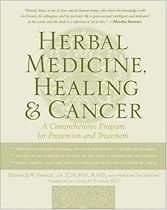 Nutritional Supplements for Chemotherapy
Nutritional Supplement Daily Dose
Lipoic acid
200-600 mg
Fat-soluble vitamin B,
50-200 mg
Coenzyme B6
50-200 mg
Liquid vitamin B12 and folic acid
2-4 mg each taken under the tongue
(Hydroxy Folate)
Vitamin B complex or multivitamin
20-50 mg with each B vitamin
PCO phytosome (grape seed
200-400 mg or pycnogenol)
Hypericum (St. john's wort)
3-6 capsules daily (use 0. Nutritional Supplements for Chemotherapy
Nutritional Supplement Daily Dose
Lipoic acid
200-600 mg
Fat-soluble vitamin B,
50-200 mg
Coenzyme B6
50-200 mg
Liquid vitamin B12 and folic acid
2-4 mg each taken under the tongue
(Hydroxy Folate)
Vitamin B complex or multivitamin
20-50 mg with each B vitamin
PCO phytosome (grape seed
200-400 mg or pycnogenol)
Hypericum (St. john's wort)
3-6 capsules daily (use 0. |












